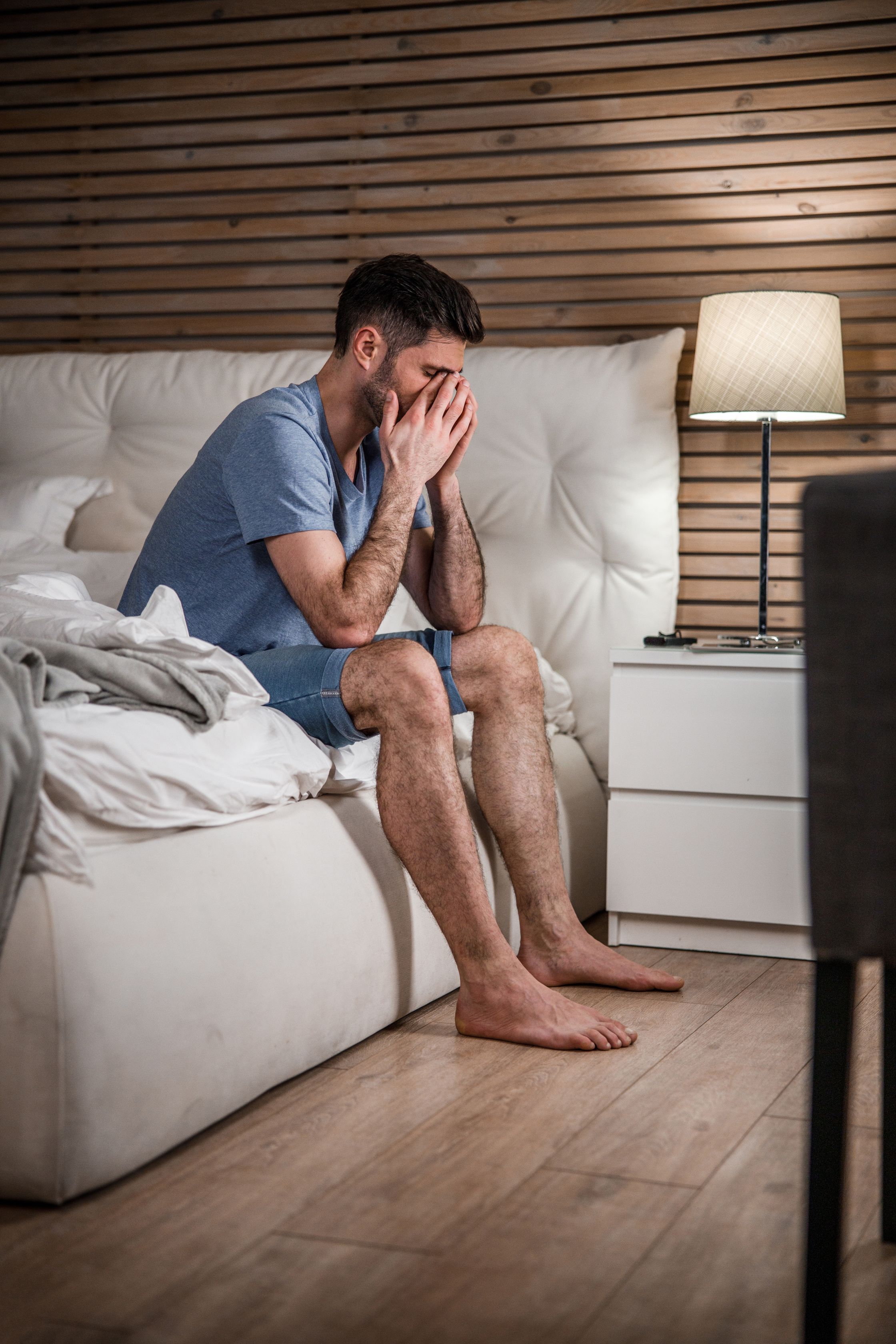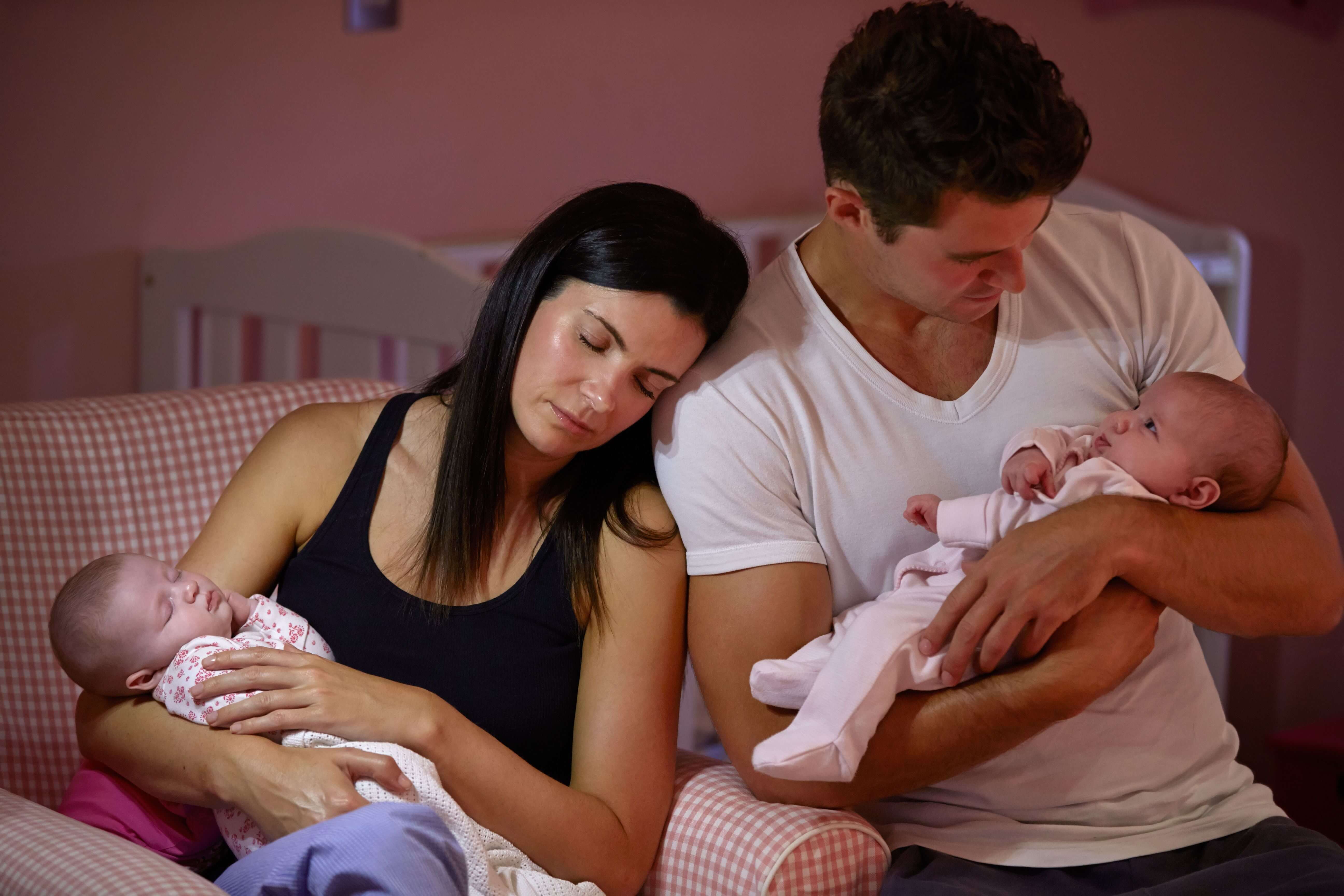Tiring Times

By Rachel Ofo
Heavy eyelids and big yawns sprinkled with a bit of forgetfulness might equal sleep deprivation. This simply means the body isn’t getting enough quality sleep. According to sleep studies, the recommended amount of sleep needed for an adult brain to properly function is 7–9 hours a night (1). This means a third of the day should be spent with eyes closed, giving the brain and body time to rejuvenate. However, between kids, work, and a world of other things, we may find ourselves missing a few of those recommended hours. Some may reason: “I don’t need eight hours of sleep. I work my best with just a few hours every night”. While this may feel true at the moment, studies show ongoing lack of sleep can negatively affect everything from your mind to your body and even your safety (2). Every aspect of our well-being depends on our ability to rest.
Effects of sleep deprivation
Lack of sleep can be brought on by a variety of things. Sleep disorders like insomnia, which is the inability to sleep, can lead to sleep deprivation. Sleep regression in our little ones can cut into our regular sleep schedules. Stress can cause sleep disruption. Even age can affect the quality of our sleep. Nearly 50% of those over 65 experience issues with sleep (3). But how does one differentiate between a “rough night” and actual sleep deprivation? Missing sleep here and there is not a huge cause for concern. However, prolonged lack of sleep can cause or worsen serious issues like hypertension, diabetes, obesity, depression, and heart attacks (4).
The reason why sleep deprivation has such negative effects is because the time the brain and body uses to regenerate is being interrupted. The sleep cycle is actually broken down into four different stages (5), where various tasks are completed by the brain. If these stages are interrupted or shortened, then necessary tasks can’t be completed. If these tasks aren’t completed, then the body struggles to regulate functions that are needed to keep itself healthy. So long periods of time without adequate rest may cause memory loss, irritability, hallucinations, and even paranoia.
Improving sleep quality
One suggestion for improving sleep quality is improving sleep hygiene. It sounds like a funny phrase. Almost as if sleep is somehow taking a bath. Although a bath before bed has been shown to improve sleep quality, sleep hygiene actually involves cleaning up bad habits that may affect sleep. For example, scrolling through the phone in bed as the brain is attempting to shut down can lead to the brain becoming more alert. This can lead to a few more hours awake or dreams that affect the brain’s ability to remain asleep. So stopping playing with your phone just before bed could improve your sleep quality.
Let’s check out a few other things that could lead to better sleep quality:
- A comfortable mattress and pillow. I remember spending our first night in a new condo and running to Ikea for a mattress topper the very next morning.
- Appropriate room temperature. Nothing can wake you like cold toes or feeling the tickle of sweat running down your neck.
- Noise apps or ear plugs. Some need a little background sound to rest, and some require absolute silence.
- Bedtime when it’s time. I’m an early bird and my husband is a night owl. I sometimes find myself trying to stay up late with him and every single time I regret it at 4:30am the next morning.
- Dark rooms at bedtime and brightness during the day. This will help your brain better understand when it’s time to sleep and when it’s time to be awake.
Sleep deprivation and parenting
We’ve all experienced lack of sleep at some point in our lives. This is especially true of parents, and it often affects our parenting. A survey taken of 1,500 parents revealed (6):
- 72% of parents get insufficient sleep at least three nights a week.
- 80% of parents feel more parental stress or guilt when sleep deprived.
- 95% of parents procrastinate before bedtime because of a lack of free time.
Whether you're a first-time parent of a newborn or you have multiple school-age children, sleep deprivation can be a huge challenge.
“Working full time while pursuing graduate school brought a good amount of sleep deprivation that lasted about eight months. This significantly affected my ability to parent, because I struggled to find a balance between being an active parent and making sure not to fail classes. Getting to bed on time felt impossible. But in order to increase the amount of sleep, while being able to function, following a routine was the only way to survive. If I could go back in time and change how the situation was handled, I would have decreased [my] hours at work.”
“The most memorable time that I experienced sleep deprivation was a common one— shortly after my daughter was born. She would wake up every hour for the first three months, and it was brutal. It caused me to be extremely impatient with her, and it took time for me to develop a desire to bond with her. I was able to get through it once we moved her into her own room. That first night my daughter slept in her own room, I slept so well. Looking back, I think I would’ve communicated my struggles and needs to my husband better [to help] me spend more time resting. Now I’m a huge advocate for communicating those needs!”

With all this being said, it’s important to remember that we are not robots. Yes, we need time to recharge our batteries, but life isn’t a preset software that runs the exact same way every single day. Things happen. Schedules change. Rhythms get interrupted. That’s life. The takeaway is to not allow these disruptions to become the center of our lives. Find ways to adjust when needed because our future selves will thank us for the decisions we make now. So, rest well, parents.
Disclaimer: This article is for informational purposes only and does not constitute medical advice. Always consult a qualified healthcare professional for personalized guidance.
Photos from Canva.
References
- Better Health Channel (2024) Sleep deprivation.
betterhealth.vic.gov.au/health/conditionsandtreatments/sleep-deprivation
- National Heart, Blood, and Lung Institute (2022) Sleep Deprivation and Deficiency.
nhlbi.nih.gov/health/sleep-deprivation
- Cedars Sinai (2024) Sleep Deprivation.
cedars-sinai.org/health-library/diseases-and-conditions/s/sleep-deprivation.html#
- See ref. 1
- Cleveland Clinic (2024) Sleep Deprivation.
my.clevelandclinic.org/health/diseases/23970-sleep-deprivation
- Auray, B. (2024) Survey: How Sleep Deprivation Impacts Parenting Stress and Guilt. Sleepopolis.
sleepopolis.com/education/parents-sleep-deprivation-study/#
About the Author
Rachel Ofo moved from the US to Bangkok in 2016 and spent six and a half years there. She has a daughter, whom she loves dragging around on various adventures like hikes and fishing trips. In her free time, she enjoys reading, watching movies, and trying new restaurants. She also enjoys being out in nature.
